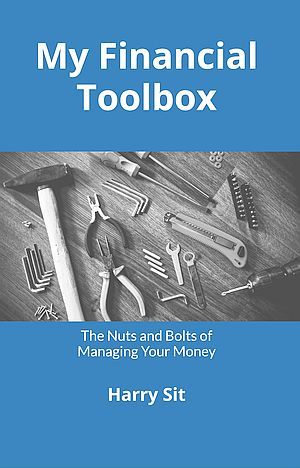No FDIC Insurance – Why a Brokerage Account Is Safe
News came last Friday that Silicon Valley Bank was taken over by the FDIC after it had a bank run. Silicon Valley Bank was the 16th largest bank in the country with over $200 billion in assets. Such a big bank failing so suddenly was a shock to the financial system.
Silicon Valley Bank primarily served business customers, not individual retail customers. The FDIC insurance limit of $250,000 isn’t very meaningful to a business. As a result, over 90% of the deposits at Silicon Valley Bank were over the FDIC insurance limit. The government rushed to make an exception and guaranteed all deposits at Silicon Valley Bank to reduce systemic risks.
Most of us don’t have over $250,000 lying around in cash. Even if we need to keep more than $250,000 in cash at times, it’s easy to spread the money over several banks to keep it fully insured. The money is safe as long as you stay under the FDIC insurance limit.
The news of Silicon Valley Bank’s failure also affected Charles Schwab. The stock price of Charles Schwab dropped over 20% at one point today. Charles Schwab has a banking arm — Schwab Bank. Schwab Bank also has uninsured deposits and unrealized losses in long-term bonds on its balance sheet. Many people do have more than $250,000 in Schwab brokerage accounts. Just the other day a reader asked whether it’s safe to buy Treasuries in a brokerage account.
Customer Assets at a BrokerThere’s a big difference between having money at a bank and having money at a broker such as Charles Schwab, Vanguard, or Fidelity. Money at a broker isn’t insured by the FDIC but it isn’t like uninsured deposits at a bank.
When you have money at a bank, you have a lender-borrower relationship with the bank. The bank borrows money from you and lends money to others. As George Bailey explained in It’s a Wonderful Life, the bank doesn’t have your money in a safe. It’s in “Joe’s house, and Kennedy’s house, and a hundred others.” Or in Silicon Valley Bank’s case, it’s in long-term bonds that the bank intended to hold to maturity but lost value after interest rates went up sharply.
When you have money at a broker, the broker is only buying and keeping things for you. There is an exact mapping between what the broker says you have in your account and what the broker keeps for you. Your money is in stocks, bonds, mutual funds, ETFs, etc. The broker doesn’t invest your money in long-term bonds for itself.
Money Market FundWhen you have cash in a money market fund at a broker, the money market fund invests in very short-term bonds. When you’re getting a 4.5% yield in a money market fund, the yield is coming from the underlying holdings of the money market fund. It’s not coming from the broker.
The safety of a money market fund depends on the safety of its underlying holdings. The money market fund isn’t FDIC-insured but its underlying holdings may be issued by government entities. If the broker goes down, you still have shares in the money market fund and the money market fund still has its holdings.
The safest money market fund holds only Treasuries and other government bonds. Vanguard, Fidelity, and Charles Schwab all have a money market fund that invests only in Treasuries and government bonds. See my Guide to Money Market Funds.
Buy TreasuriesIf you can commit to a set term (the equivalent of buying a CD at a bank), you can also buy Treasuries in a brokerage account. You don’t need FDIC insurance when you buy Treasuries because Treasuries are issued by the federal government.
The big-3 brokers Charles Schwab, Vanguard, and Fidelity all make it very easy to buy Treasuries with no fee. See How To Buy Treasury Bills & Notes Without Fee at Online Brokers and How to Buy Treasury Bills & Notes on the Secondary Market.
Madoff and MF GlobalPeople lost money at brokers when the broker didn’t maintain the exact mapping between what it said customers had in their accounts and what the broker kept for the customers. Two recent examples are Bernie Madoff and MF Global.
Madoff falsified account records. He said he bought this and that for the customers but he really didn’t. It was a fraudulent scheme.
MF Global breached the legal separation between customer assets and broker assets. It “borrowed” from customer assets to cover failed speculations elsewhere. Customers were eventually made whole after MF Global went bankrupt but it took five years.
SIPC InsuranceBrokerage accounts are insured by SIPC up to $500,000 but the insurance doesn’t cover the payback from your investments. It only covers missing assets if the broker goes down.
If you don’t suspect that Charles Schwab, Vanguard, or Fidelity will act illegally as Madoff or MF Global did, the safety of your money at these brokers doesn’t depend on the financial health of Charles Schwab, Vanguard, or Fidelity.
Most of my money is in brokerage accounts. I don’t worry about whether the account is over the SIPC insurance limit. Money at a broker is safer than uninsured deposits at a bank.
Learn the Nuts and Bolts I put everything I use to manage my money in a book. My Financial Toolbox guides you to a clear course of action.Read Reviews
I put everything I use to manage my money in a book. My Financial Toolbox guides you to a clear course of action.Read ReviewsThe post No FDIC Insurance – Why a Brokerage Account Is Safe appeared first on The Finance Buff.
Harry Sit's Blog
- Harry Sit's profile
- 1 follower



